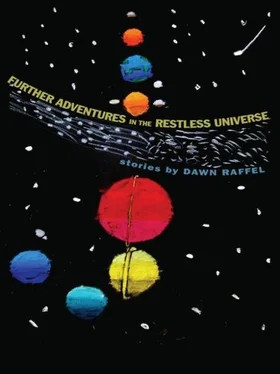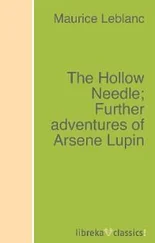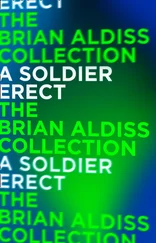“To keep me,” the bird says.
The bird leads the girl to a very deep forest. “Bird, I am hungry and thirsty,” she says.
They fly and they walk to a well that is deep. The girl looks down from the light into water. “There is no feather here,” the girl says.
The bird is on the ledge.
“You misled me,” the girls says, and drinks her fill.
Back in the palace, the king takes the girl in yellow, increasingly shabby, deeply to task. “No supper for you,” the king decrees. “And as for the feather, if you don’t find it, I will stone you to death.”
The son of the king is playing a flute. The girl in red is dancing for him, ashimmer in jewels.
The king says, “The feather.”
Daybreak, the bird reappears at the foot of the bed to the girl in yellow. “Do not fear,” the bird says. “Follow me,” the bird says.
“Why should I?” the girl says. “You failed me the last time.”
“Because,” the bird says, “you promised to keep me.”
The girl appears not to believe she has made such a vow but follows the bird through the forest, and then to the field. Thorns pierce her feet, and her garment of yellow is stained and torn. “I am hungry and thirsty and dirty,” she says.
Rain falls in torrents. “There,” the bird says.
“Where?” the girl says. “There is no feather in the rain in the field.”
The bird is in the grass.
“Then you are not looking,” the bird says.
The girl drinks handsful and washes herself.
Meanwhile, the girl in white has gone to the sea in search of the feather alone, she has. “If I find the feather,” she thinks to herself, “then the son of the king must marry me.” The girl in the white trips on a rock, which is sharp, which is hidden by the water, which has risen to her eyes. There is nobody there. She drowns.
Back at the palace, the king shakes the girl in yellow until she cries, “Mercy.”
“No supper for you,” the king says.
Music is playing.
“One last chance,” the king says. “If you do not find the feather—”
“I know,” she says.
“Only the feather will save you,” he says. “Do you not wish to be the wife and then the mother of a prince and then a king?”
“I wish,” she says.
Meanwhile, the girl in blue, embroidered and sashed, is weeping by the sea, for she loves the king’s son, and will never so much as glance at another.
Daybreak, the bird comes back to the foot of the bed of the girl in yellow, in the room where the table and chair are now broken. “Come,” the bird says.
“Not the sea, and not the well, and not the rain,” the girl says.
“Not the sea, and not the well, and not the rain,” the bird says. “Nevertheless, you have given your promise.”
Her hair hangs in clumps. From far down the hall, she can hear the flute playing.
“Follow me,” the bird says, and so the girl follows — all through the day and into the next and into the next, her feet now bare. When she can’t see, she follows by sound. When the wind blows, she follows by feel.
“Bird, I am dying,” the girl says, as day finds the world again. The kings’ men will hunt her.
Hungry and dizzy and thirsty and ragged, the girl in yellow spies a glass palace ahead in the distance, which, the bird says, is of another kingdom. Hour upon hour they walk and they fly. It disappears. “There is no palace,” the girl says. “It was only a terrible trick of the eye. All you have done is swindle me.”
“Then kill me,” the bird says.
“Maybe I will.”
“Go ahead,” the bird says.
The girl grabs the bird by the neck and wrings. It dies in dirt.
“What have I done?” the girl cries and cries. “Now all is lost.” And then the girl sees it: the feather in the broken body in tears. The feather is golden. She sits there awhile, in her dress that is yellow, aslump in the dirt.
She eats the bird. She sings in light.
The girl in yellow, bearing the feather, returns to the king. “Too late,” the king says. “The prince has already chosen another.” He turns the girl out.
The girl lays the feather under her pillow. She lives in a shack.
The girl in red is beheaded in the spring.
The prince becomes king. The streets are all paved.
Many years later, the prince who is king is disemboweled by his son. Asleep in a shack, a tiny old woman lies dreaming of flight.
All along the waterfront the girl in blue, who is ancient by now, who is shrouded by now, walks the skin from her feet until the blood leaves marks, until the bones leave tracks, until the wind and the water wash them away.
“Come with me down to the river,” she said.
“Now?” he said.
“Now,” she said.
“But it’s the middle of the night.”
It was the middle of the night. Their children were sleeping, and thus it was reckless. Nevertheless, they walked down to the water and killed the light they’d carried there.
The river was filled with what rivers are filled with.
“Listen,” she said.
He caught his step. “What is that?”
“The current,” she said.
“No, that,” he said. “The planet.”
“What planet? Oh,” she said. “Venus?”
“It’s early for Venus.”
She threw in a stone. “I suppose,” the woman said.
“Well, anyway,” the woman said.
“Well, may be, ” the man said. “Tell me what you think.”
“I guess we ought to go,” she said.
“It’s something, I think.”
The water was active.
Together they sat skipping stones in the dark.
THE AIR AND ITS RELATIVES
We cannot find the car in the lot, again. Our ears burn, or mine do. Wind off the lake holds a violence in winter. My father says nothing. The building from which we have just made an exit is already locked; its churning stars extinguished, planets suspended, moons switched off. It is a very old facility. It rests on a spit, a peninsula, a man-made extension, apart from the city, the center of the city with its steam and vibration. The lot is near empty, the sky too low. “Now I remember,” my father says. “ We’re not here.”

“Left,” he says. “Go left at the light.”
“I am trying,” I say. I have failed the test twice: rolled over the curb, did not see the object. Nevertheless, I do as instructed.
My father is wearing a jacket older than I am, gotten in war.
There is a star on the windshield.
The car had resurfaced outside of the aquarium a half-mile inland.
“Stop at the stop sign.”
“ Which?” I say.
Cracked glass. Droplets.
“Hit the de-fogger,” my father says.
“I know,” I say. I do, in fact.
My father is pushing a button on the dashboard. Bone and vein and knuckle; the nails are not clipped. There is a scar on the hand.
There is a sigh of activation and the world becomes visible.
“Better,” he says. “ You’re learning, I think.”
Now we are only maybe ninety miles more from home.

“Congenital,” my father said, the time that he said it, describing the defect. Degenerative, and worsened by the decibel. The permanent damage occurred in the Air Corps. Middle ear, my father said.
Pardon me. I did not receive the gene.
The soft bones of hearing went spongy, he said — the source of distortion. “Guam,” he said. The aid had whistled feedback. After a very long while or maybe a short while, a vein in the hand had been deployed to the ear, a highly adaptable channel for blood. Next came the nonstick synthetic material, surgically inserted, the same as we used to fry an egg.
Читать дальше










